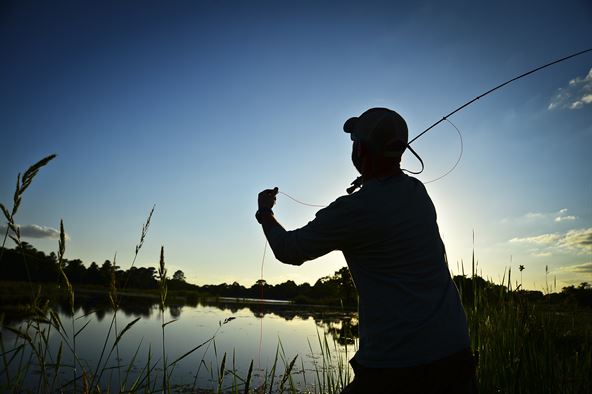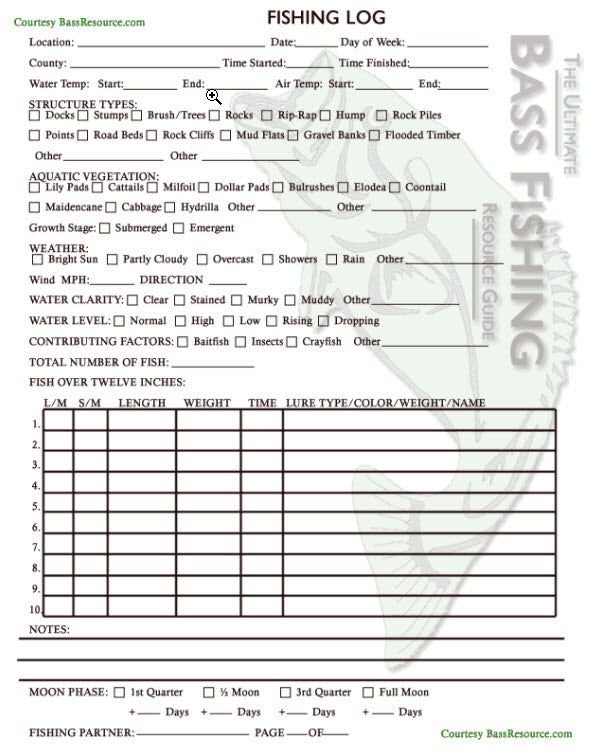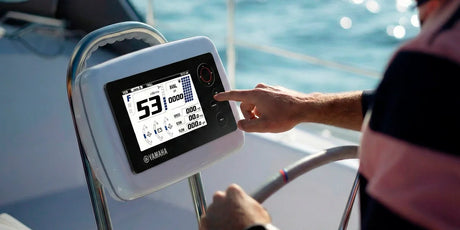Mike Brown of Clarks Hill, SC, is a member of the PartsVu community and a bass tourney winner. He was generous with invaluable advice for improving bass fishing skills. This is Part 2 – if you missed Part 1, check it out.

Volumes of books, videos, and articles have been published on becoming a better bass angler. When I first got serious about bass fishing some 50 years ago, there was very little information available to learn the sport's many nuances. Now you can find books at the library (yes, libraries still exist!), articles in outdoor magazines, and of course, the internet--YouTube, tackle manufacturers' websites, pro anglers' websites, national bass organizations' websites, TV shows, etc. If you have ever Googled bass fishing tips, instruction, lures, or tackle, you know what I mean. All of the above are useful resources; however, those resources will only take you so far if you do not have hands-on experience.
So, in order of importance, I laid out what I believe are the best ways to improve your bass fishing abilities. I laid out my top three ways to improve in Part I of this article, the next three suggestions are outlined here.
Do Your Homework
Earlier I mentioned all the avenues you have to research any type of bass fishing you desire to learn. From walking the bank to fish, to fishing from a kayak or a canoe, to fishing in a high-end fully equipped bass boat, you need to watch and read just about everything you can to see what the pros or good amateurs are doing. A few of the TV shows (of the 30+ available) are entertaining and teach you tried and true techniques. Most TV shows hosted by a celebrity angler promote a sponsor or two, and you will learn little about how to find and catch fish. I do give credit to shows such as BASS, FLW, and Major League Fishing (MLF) that show you just about every catch in real-time, and more importantly, they explain what they are doing.
For example, MLF shows most catches, and the anglers talk about why and where they are fishing. The best part of MLF is that they have a half-hour show where the top finishing pros detail how they figured out the bite and what they used. Another example is how BASS broadcast all four days of fishing live on their Elite Circuit show. Last week I watched about 20 hours of recorded video on the St. Lawrence River, and this week you can watch four full days of coverage on Lake Champlain. TV fishing has evolved into what I consider to be the best instructional resource short of YouTube how-to-fish videos.
The TV shows offer the best entertainment, but if you really want to watch how pros and amateurs use certain baits, interpret their electronics, and how to fish specific lures, then YouTube is your place to go.
Practice, Practice, Practice

Casting accuracy is best learned and perfected at home, not on the water. Years ago, I learned from one of the most successful pros ever, that flipping and pitching a lure caught more fish than regular casting on a lake with considerable shoreline cover; I knew I needed to learn the techniques.
I’m from Ohio (GO BUCKS!!). From late November until sometime in March, bass fishing wasn't much of an option. Many days I stood for hours on end on an old milk crate in my driveway, sometimes in the snow, and practiced flipping and pitching an old jig into paint cans and styrofoam cups. By the end of the first winter, I was consistently hitting the targets, about 50% of the time. At the end of the second winter, I was up to about 90%. I've yet to achieve 100% accuracy, but I’m still working on it, and I began this practice 20 years ago.
I can’t begin to count how many bass I have caught from places very difficult to reach with traditional casting, but I have won many bass tournaments over the years due to this skill. And the practice never ends. In the last couple of years, I’ve begun learning how to skip baits under docks and overhanging trees. Unfortunately, it’s not a technique I can practice on dry land, so I've spent many days on the water practicing skipping.
The particulars are too numerous to mention in one article, but it is a proven winner among the pros on certain lakes. With floating docks on Thurmond and Hartwell, one must become a good skipper to catch fish when the bass are related to docks, especially when you have 1'-2' openings between the floats. I know that there are always a few bass under docks with 10' or more of water depth, and perfecting this technique allows me to increase my chances for success.
The continued practice also greatly reduces the number of backlashes in a day of fishing. Backlashes account for more frustration while fishing than anything else, including not catching many bass in a day. For those who play golf, tennis, or just about any other sport that requires hand-to-eye coordination, this type of practice is not new to you. Those who don't participate in those types of sports talk to someone who does, and you will understand that many days, weeks, months, and even years of practice are necessary if you want to improve your game.
Remember the old joke about a person asking someone on the corner in NYC how do you get to Carnegie Hall? The answer is practice, practice, practice!
Learning From Your Mistakes
Success in tournament fishing is, in large part, to making good decisions on the water. The same applies to fishing for fun. You need to apply self-analysis after each day on the water. Ask yourself, if I had followed my instinct and had fished rocky banks rather then laydowns and grass, would I have caught more bass? If it was just after an overnight cold front, maybe the rocks were holding a few more degrees of heat compared to the banks void of rocks. Or, during a hot, still day, if I had fished offshore structure rather than the backs of shallow creeks, would I have caught bigger fish who had retreated to the deeper cooler water? Or should I have fished with Carolina rigs and deep crankbaits rather than sticking with a spinnerbait that I caught a bass shallow early in the morning?

The lesson here is when the bite is slow or stops, pause to ask yourself things such as; could it be the color of my worm, or am I fishing too deep or too shallow, should I seek out water that is a few degrees warmer or cooler, should I fish a white buzz bait instead of a black one? Asking yourself questions based on what worked in the past under similar conditions goes a long way toward turning around a poor fishing day to a good one.
I highly recommend keeping a fishing journal every day on the water, starting with air and water temps, day of the week, and how crowded the lake is. Take time to write down where and how you caught a fish with details about the depth, shade, wind, GPS coordinates, etc. There are fishing logs with premade templates to jot down your activity. Noting these things, then pulling it out when you are having a tough day and refer back to similar conditions will often lead to success.
To summarize, if you incorporate the following steps into your bass fishing preparation, you will significantly increase your bass fishing skills.
- Spend enough time on the water
- Take advantage of learning from other accomplished anglers
- Choose good quality tackle
- Do your homework and take advantage of the tools available to everyone
- Practice until you become proficient with all types of casting
- Learn from your mistakes and document what you experience
Click here if you missed Part I of this article.













